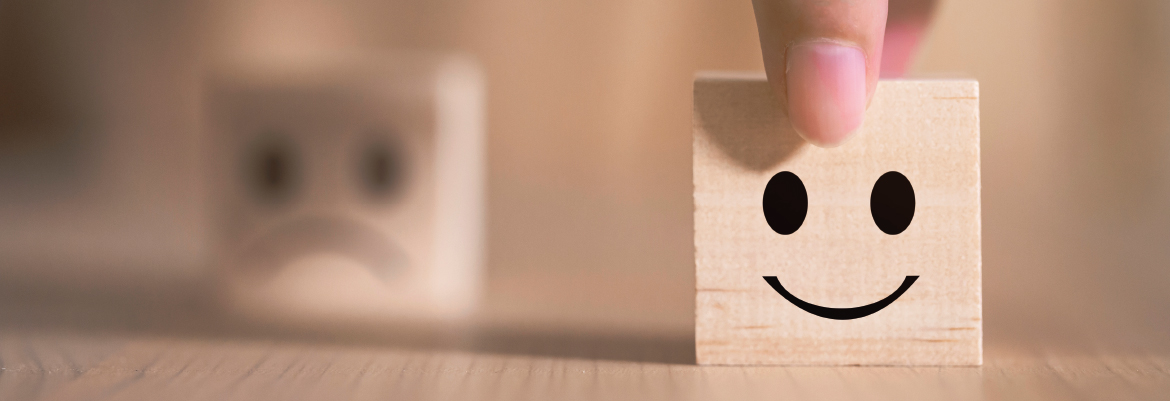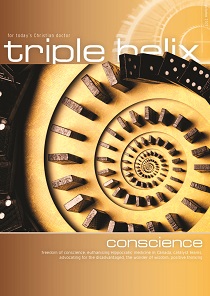Every day, in every way, I'm getting better and better! [1]
Self-improvement by autosuggestion was already a recognised technique when Norman Vincent Peale (1898-1993) published his book The Power of Positive Thinking in 1952. A hugely influential preacher, motivational speaker, and writer, Peale combined Christian hope with a kind of general optimism and had a massive worldwide following (he still does, judging by the reviews on Amazon). Peale claimed that his book was 'applied Christianity', [2] but his claims were grandiose: 'you can experience an amazing improvement within yourself...you can modify or change the circumstances in which you now live, assuming control over them...you will become a more popular, esteemed, and well-liked individual...you will enjoy a delightful new sense of well-being...you will wield an expanded influence.' [3]
A man of his time, Peale was certainly well-intentioned, but his teachings were a sort of early 'prosperity gospel'. God was side-lined into a helpful supporter who wanted you to succeed physically, spiritually, and financially.
I found myself thinking about positive thinking as I listened to the local radio whilst driving to work one day. Sandra was raising money for charity in the wake of treatment for breast cancer. She told her story with candour. It was great to hear our local Breast Care Centre praised and the specialist nurses described as 'brilliant'. Then Sandra's partner, Dave, was speaking: 'She's always been a fighter. Tackles things head-on and never lets anything get her down. Amazing attitude. She's going to knock spots off this disease. Anyone can beat cancer if they really want to. It's just a matter of positive thinking!'
I groaned. It was just weeks since I had attended the funeral of a gloriously positive and hopeful Christian friend who died of ovarian cancer.
Now don't get me wrong: I love an upbeat attitude. And when positivity motivates someone to dust off their trainers, join a slimming club or call Quitline (NHS stop smoking support), then I am all for it. Empirical research shows that optimism tends to be associated with good health and long life, but it is hard to differentiate between cause and effect since the optimism is self-reported. Patients often say, 'Don't worry, Doctor, I won't let this thing beat me!'. I feel pleased that they have come to terms with a chronic or debilitating illness; I know they will do all they can to live life to the full.
But sometimes, I am less confident. A terminally ill patient might say, forcefully and passionately, 'This cancer won't beat me! I'm made of stronger stuff!' And their agonised spouse echoes the same mantra: 'Yes, we'll fight it. We'll fight it together and we'll win.' But this positive thinking is wishful thinking.
Peale's books were not a hit with everyone. Influential reformed theologian Reinhold Niebuhr called his brand of positive thinking 'dangerous...it hurts people...it helps them to feel good while they are evading the real issues of life.' [4] The then Dean of Yale Divinity School, Liston Pope, called it a 'cult' where 'God becomes sort of a master psychiatrist who will help you get over your difficulties...The constant reiteration of such themes as "You and God can do anything" are very nearly blasphemous.' [5]
American bishop John M Krumm espoused a few heresies of his own, but he too criticised Peale: 'Very little is said about the sovereign mind and purpose of God; much is made of the things men can say to themselves and can do to bring about their ambitions and purposes'. [6]
So how should we view 'positive thinking'?
Be wise. Recognise the limitations of positive thinking. From a biblical perspective, a 'you can do it' mantra never saved anybody. From a medical one, it can even be detrimental. If Sandra has an off day, possibly when she feels sick and loses her hair on chemotherapy, is she allowed a good cry on Dave's shoulder, or will this be classed as 'giving in'? If she wants to write a will and settle her affairs, will the family remonstrate with her for capitulating? And if, someday, she is weak and weary and admitted to the local hospice, will she feel a moral failure because she has succumbed? Maybe she did not try hard enough? [7] If a terminally ill patient feels obliged to maintain a cheery front and pretend that death is not imminent, how dare they reach for the Gideon Bible or ask for a visit from the chaplain?
Be clear in your own mind. When a patient puts faith in positive thinking, as if by their own force of personality and strength of conviction they can overcome organic illness, then this is a false gospel, an illusion. They are trusting in themselves. [8]
Be kind. If a patient talks about the power of dubious psychology affecting real organic change (such as visualising superhero T-cells killing evil cancer cells), then there is no need to pour scorn. Such mental exercises at least promote a desire to use remaining time well. It is better to avoid a flat contradiction.
Be hopeful. 'A cheerful heart is good medicine.' (Proverbs 17:22) We all need encouragement when we are ill. Many downcast patients need reassurance that things may improve, that treatments are available, that you will support them through the illness.
Be bold. A holistic consultation acknowledges the spiritual dimension. [9] Ask about faith if it seems appropriate but do not exploit a patient's vulnerability by pressing your own beliefs. A Christian patient may be glad of your shared faith, but this should only find expression where it is relevant to the consultation. A retired vicar told me that he had peace about his palliative care because Christ upholds each of our lives every day anyway. 'Yes,' I replied,' for in him we live and move and have our being.' (Acts 17:28) Then we moved on to discuss pain relief.
Be truthful. Do not endorse positive thinking as a means of tackling malignancy. There is no evidence that a positive attitude affects recovery from cancer. [10]
Beware. There is a sort of Christianised positive thinking. An elderly couple were both seriously ill but a member of their church convinced them that God intended to heal them. So convinced were they of the truth of this prophecy that soon the whole community knew of the miracle God was doing in their lives. They died in quick succession. The church explained that God had provided the ultimate healing by taking them to be with him. This was true but not what people had explicitly been led to believe.
Such positive thinking - trusting in my faith that God will heal me, is still 'all about me' and when it fails, it brings the gospel into disrepute. Yes, God can - and does - work miracles but he does not promise us a trouble-free life. Quite the opposite! [11] An old man I visited was very weak physically but his spirit was strong. 'It's what God wills', he whispered to me, 'Thy will be done'.
Peale's 1974 title You Can If You Think You Can sounds awfully like 'name it and claim it' and has inspired the devotion of many disciples. Donald Trump cites Peale's influence in his success. [12] In contrast, writing on the perils and drawbacks of self-esteem interventions and 'boosterism', Professor Glynn Harrison notes that 'the gospel insists that we deal in reality and truth. It confronts the idolatry of self and refuses to conspire with our ego-absorption'. [13]
Positive thinking has its place. Believers have a real and lasting hope, and counting our blessings will make us thankful and joyful. But let us be biblical; let us have confidence, not 'in confidence alone' [14] but in our sovereign heavenly Father and his Son, our Saviour. 'For God has said, "Never will I leave you; never will I forsake you".' (Hebrews 13:5)
Now that's what I call positive thinking!
Ruth Eardley is a GP in Market Harborough and a member of the Triple Helix committee































